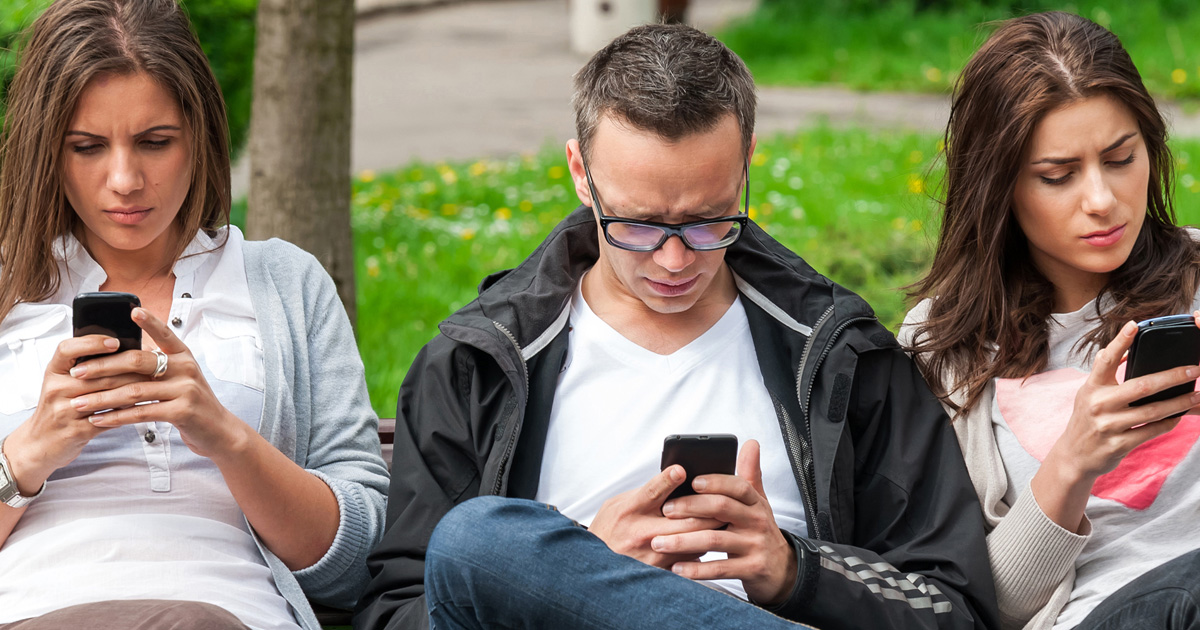Your Cell Phone Is Changing Your Personality

By:
Distractions and phubbing—a distinctly modern dilemma that disrupts conversations—aren't our only cell phone problems. According to a researcher at MIT, we are losing some of our ability to tap into natural, personal experiences, like solitude and empathy.
RELATED: How Phubbing is Hurting Your Relationship
Americans spend about three hours per day on mobile phones. This increased use and screen time has led to some real problems, MIT social scientist Sherry Turkle, author of "Alone Together" and the new "Reclaiming Conversation," told Business Insider.
"It's not some silly causal effect, that if you text you have less empathy," she explained. "It's that you're not getting practice in the stuff that gives you empathy."
Cell phones are changing our lifestyles, and in many ways, our personalities, something comedian Louis C.K. has quipped about:
Do you apologize in-person or over text?
Turkle gives one example that clearly shows how much our cell phone obsessions are changing our interactions: apologies.
"A face-to-face apology is such a classic place where we learn empathy," she says. "If you're apologizing to me, I soften because I get to see that you're genuinely upset—you get to see that I have compassion for you. But if you type 'I'm sorry' and hit send, nothing happens."
RELATED: This Meme Is a Cringeworthy Reminder to Put Down Your Phone
It might not be easy to apologize to someone in-person, but can be constructive over time.
The same can be said for our understanding of solitude.
"Solitude is the capacity to be alone with yourself, to gather yourself and have a sense of 'Here I am, I'm OK,'" Turkle explains. It's not a state of excitement. It's more like your brain's default mode, Business Insider reports.
Solitude is also where you can build your understanding of who you are and your "autobiographical past," Turkle said. "Those moments of solitude and boredom are where you have an opportunity to knit together who you are, what your history has been."
RELATED: The Reasons Why Your Cell Phone Is Slowly Killing You
Part of achieving moments of solitude, Turkle said, is learning to be present in the moment.
"You need to be able to sit with your own thoughts and not pull out your phone in order to become the kind of person who can be comfortable and good with people," she says.
Although we are still able to feel seclusion and show compassion, our device-centric society makes us it harder for us to practice these common traits, Turkle explains.
Are cell phones turning us into bad friends?

Research from Virginia Tech psychologist Shalini Misra suggests yes, indeed.
Misra and her team asked 100 pairs of people in Washington, D.C. cafés to talk about "either a meaningful or meaningless subject, and then watched the conversation, noting when one conversational partner or the other messed with his or her phone."
Throughout the experiment, each time a mobile device appeared, it reduced the feelings of "interconnectedness" or bond or connection between the two people in conversation, according to a summary in the British Psychology Society’s Research Digest.
Our phones make us physically present, however, we are often not as emotionally present, Misra told New York Magazine.
"It urges us to think deeply about how our technologies change us and the physical context of our lives. Are we devoting the time and energy needed to build and sustain our relationships? Are we losing the capacity for thoughtful reflection and empathy?"
